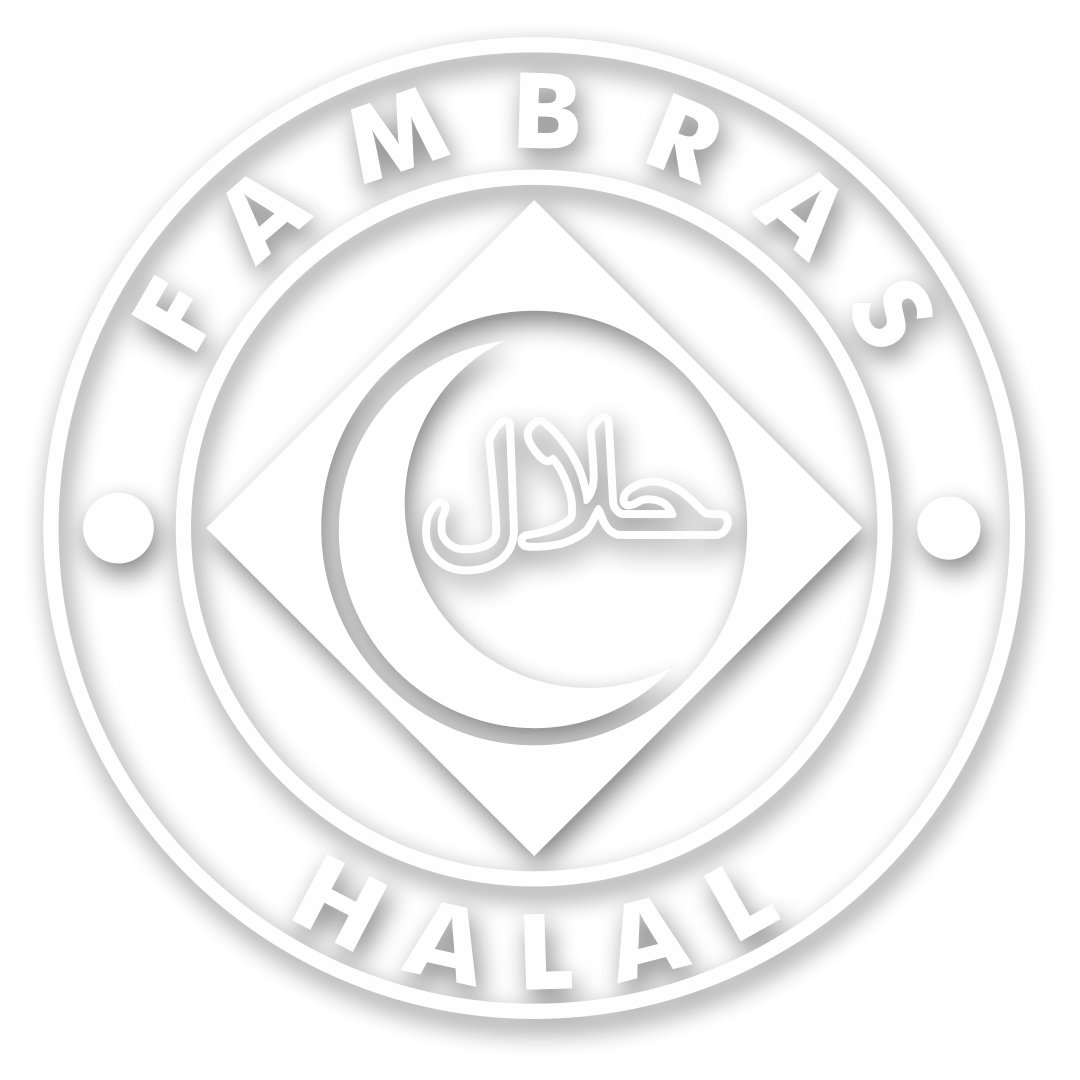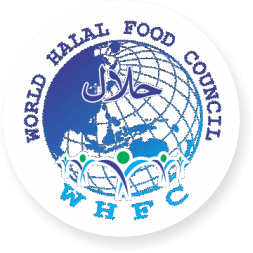Certification Categories
Complete categories of Halal Certification in several areas of activity in the Market.
Food, food supplies and food additives
Our eating habits often reflect our personality and beliefs. In the Holy Quran, God guided the consumption only of Halal foods, which are lawful and allowed. Thus, Muslim consumers around the world are looking for Halal food.
Halal certification applies both to final products, for direct consumption, and to raw materials, food inputs and food additives, after all, the traceability of the chain as a whole is very important.
Brazil today stands out both in the export of Halal foods and in the supply chain of Halal inputs and additives, which is already duly consolidated in the domestic and foreign markets.
In this category we can certify meat, canned goods, ingredients, food additives, food inputs, milk and derivatives, pasta, flour, sugar, salt, non-alcoholic beverages, drinking water, ready-to-eat products, fresh or processed fruits and vegetables, eggs , dairy products, fish, etc.
Halal certification guarantees that the food meets the requirements of Islamic jurisprudence, is free from any product prohibited for consumption by Muslims (also known as Haram), and practices the Halal concept. It is a form of additional quality assurance for all consumers.
Slaughterhouse
There is much to say about Halal slaughter, and FAMBRAS Halal is proud to have been a pioneer, contributing to the process of the first Halal meat export from Brazil!
Currently, Brazil has consolidated itself as the largest exporter of Halal animal proteins in the world, accounting for around 40% of all Halal chicken and beef exports.
In the slaughterhouse category, it is possible to certify the Halal slaughter process of animals that are approved for human consumption, in accordance with the requirements of Islamic jurisprudence, such as chickens, ducks, cattle, sheep and goats.
To get further information about the Halal
Farm, Agriculture and Livestock
Halal product traceability is the main basis of certification, and it all starts on agricultural or livestock farms. Despite still being a timid sector, Brazilian products have immense potential in the Halal market.
In this category, the practice of the Halal concept is especially evaluated, which is everything that is lawful and permitted, therefore, the workforce, waste management, confirmation of the use of pesticides, pesticides and antibiotics will be evaluated in accordance with national legislation. , in addition to the exemption of Haram (prohibited) products.
Agricultural product farms, such as fruits, vegetables, cereals, horticulture, spices, animal husbandry, fish, milk production, eggs, beekeeping, among others, are eligible for certification.
The Halal certification of the farms is a competitive differential, in addition to a globally recognized seal of safety and quality.
Animal feed and nutrition
Animal feed and nutrition products are understood to be everything intended for consumption by animals. Product traceability is essential in the Halal certification process, therefore, it is necessary to ensure that the feed consumed by those animals that will be slaughtered Halal also comes from a legal source.
The animal protein sector has transformed Brazil into the largest exporter of Halal food in the world. We, at FAMBRAS HALAL, see immense potential in this market, as we must also be concerned with the origin of the feed for this meat.
In this category, animal nutrition products and even pet food are subject to certification.
Halal feed certification is a competitive differential, in addition to a worldwide recognized safety and quality seal.
cosmetics
The search for Halal cosmetics is growing, especially due to society's demand for change and inclusion. The fashion and beauty sector increasingly seeks to serve people of different ethnicities and cultures, which, of course, includes products free of animal suffering and Haram elements, such as keratin, vitamins, collagen and glycerin, pork gelatin, for example.
To be Halal, the cosmetic or personal care product must prove that it does not use any Haram (prohibited) element, and have documents attesting to the origin of all its ingredients. The quality of the product is also evaluated and whether the company fits within the Halal concept, of what is lawful. Therefore, a commercial and quality differential for the products.
In this category, cosmetics such as makeup, nail polish, and personal care products such as shampoos, conditioners, creams, dyes, deodorants, soaps, lotions, perfumes, among others, are subject to certification.
Drugs
There is a growing demand from Muslims looking for Halal pharmaceutical products. Consumers increasingly seek to understand the origin and manufacturing process of everything they consume.
Muslims especially seek to adopt a Halal approach to preventive medicine, for example by combining modern science with Halal/Al Tayyb (healthy) purity in medicine and food.
This certification category includes nutraceutical products, vitamins, medicines, vaccines, ingredients for the pharmaceutical industry, among others. It is essential that these products are free of Haram (forbidden) elements in their composition, are safe for those who use them and fit the concept of what is lawful.
packaging
When we think about the Halal certification of a food, for example, we consider that its entire formulation must be free of Haram elements. However, we cannot forget the packaging that will contain it, after all, it also needs to meet the requirements of Islamic jurisprudence in order not to be a source of contamination for the Halal product.
Packaging is understood as everything that surrounds and stores the Halal product, with the aim of protecting it or facilitating transport, including packaging.
Once the packaging is certified, it can be offered to all Halal customers in the national and international market.
Food services, tourism and leisure
In order to serve Muslim and even non-Muslim consumers, it is possible to certify food, tourism and leisure services. These, in turn, must comply with the principles and values of Islamic jurisprudence, such as not selling alcoholic beverages, not serving pork, among other details.
The certification of companies in this category is not only a seal of quality, but also a demonstration of the company's respect for Muslim consumers.
The following are eligible for Halal certification in this category: restaurants, fast food chains, hotels, inns, airlines, amusement parks, among others.
Logistics
Logistics is a very important step in the Halal product chain due to traceability. In this way, assuming that Halal is applicable from farm to table, it is possible to certify any logistics company as a warehouse, transport or distribution center.
Halal certification is a guarantee that the company complies with the principles of Islamic jurisprudence and still has recognized quality standards.
Chemicals
Chemical products are raw materials for the most diverse products consumed by our humanity. Assuming that a certified product only needs to use Halal (permitted) raw materials, the certification of the category is justified.
The Halal seal on chemical products is the guarantee that it is free of Haram (banned) products, and that it has gone through a certification process, which guarantees quality and safety.
Chemical products subject to certification are understood to be: acids, bases, salts, oxides, hydrocarbons, oxygenated, nitrogenated, among others.
Do you want to enter a market that moves US$ 4.88 trillion a year?
For information on how to certify your company and products, just fill in your details. Our team of experts will contact you for more information.








